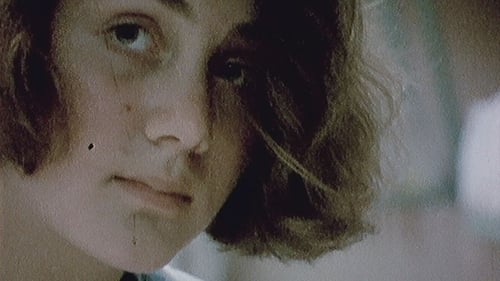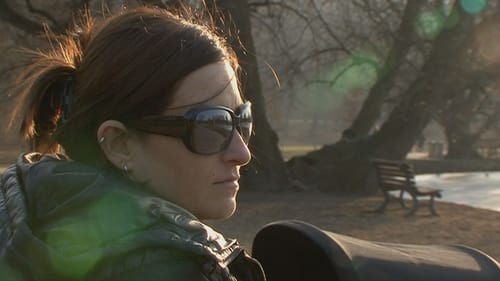
Camera Operator
Anny follows the life of the titular, intriguing character for 16 years, from 1996 up until 2012. Living in the Czech Republic, Anny is a 46-year-old woman whose day-to-day life has consisted of several different occupations, from a bathroom attendant and a doorman, to occasional sex work. Her outlook on her jobs is fairly simple, you have to do the work if you want to eat, spoil your grandkids, or buy yourself new clothes.

Camera Operator

Camera Operator

Producer
Luisa and Erika are prototypes of young women who plunge into relationships with the "wrong" men. Luisa wants to become an actress, which upsets her husband Igor to no end. Erika is trying to work as much as possible so that she can afford to study and thereby achieve a better outlook on life, but she unfortunately runs up against a boss who doesn't have the best intentions with her. Ultimately Luisa's husband demonstratively commits suicide. Erika accidentally kills her boss in self-defense... The women blame themselves for all these failures, and that has got to change. Both have to grow up and start living again. Perhaps even together.

Costume Design
Luisa and Erika are prototypes of young women who plunge into relationships with the "wrong" men. Luisa wants to become an actress, which upsets her husband Igor to no end. Erika is trying to work as much as possible so that she can afford to study and thereby achieve a better outlook on life, but she unfortunately runs up against a boss who doesn't have the best intentions with her. Ultimately Luisa's husband demonstratively commits suicide. Erika accidentally kills her boss in self-defense... The women blame themselves for all these failures, and that has got to change. Both have to grow up and start living again. Perhaps even together.

Screenplay
Luisa and Erika are prototypes of young women who plunge into relationships with the "wrong" men. Luisa wants to become an actress, which upsets her husband Igor to no end. Erika is trying to work as much as possible so that she can afford to study and thereby achieve a better outlook on life, but she unfortunately runs up against a boss who doesn't have the best intentions with her. Ultimately Luisa's husband demonstratively commits suicide. Erika accidentally kills her boss in self-defense... The women blame themselves for all these failures, and that has got to change. Both have to grow up and start living again. Perhaps even together.

Director
Luisa and Erika are prototypes of young women who plunge into relationships with the "wrong" men. Luisa wants to become an actress, which upsets her husband Igor to no end. Erika is trying to work as much as possible so that she can afford to study and thereby achieve a better outlook on life, but she unfortunately runs up against a boss who doesn't have the best intentions with her. Ultimately Luisa's husband demonstratively commits suicide. Erika accidentally kills her boss in self-defense... The women blame themselves for all these failures, and that has got to change. Both have to grow up and start living again. Perhaps even together.

psychiatr
Luisa and Erika are prototypes of young women who plunge into relationships with the "wrong" men. Luisa wants to become an actress, which upsets her husband Igor to no end. Erika is trying to work as much as possible so that she can afford to study and thereby achieve a better outlook on life, but she unfortunately runs up against a boss who doesn't have the best intentions with her. Ultimately Luisa's husband demonstratively commits suicide. Erika accidentally kills her boss in self-defense... The women blame themselves for all these failures, and that has got to change. Both have to grow up and start living again. Perhaps even together.

Screenplay

Director

Director

Director of Photography
"The whole film talks about the time when I was first locked up, from sixteen till now, I’m 22 now, and during that whole time I was out maybe five months, and I’ve really had it by now. It’s also about why I’d given my life to Jesus Christ and then failed that Jesus in me because I was tempted by earthly pleasures; and it’s also about how every time I’m ready to start a new life, I get locked up again because it’s always too late. It’s just too late. That’s the greatest shame and that’s what it’s about..."

Director of Photography
From the behavior, discourse, and appearance of individual actors, Vachek composes, in the form of a mosaic, a broad and many-layered film-argument about Czechoslovak democracy in the period of its rebirth, all administered with the director’s inimitable point of view.

Director of Photography
Pavlina is a drug addict imprisoned, as well as her boyfriend, for illegal drug manufacturing. They meet again after the amnesty and the vicious circle of drugs starts rolling again.

Director of Photography
René has been in prison since he was 16. He is sick of life and doesn’t care about his parents (just as René’s parents never cared about him when he was a child); he doesn’t even know how many more children they had. After the general amnesty, René just hangs around, not satisfied in any job, and with his younger brother he starts stealing. In no time he is back in prison, this time joined by his brother who is still a youth. History repeats itself and René’s life philosophy seems to be confirmed: You enjoy your freedom for a while, then go to prison and the same thing happens all over again.

Camera Operator
Showing his own original footage of Prague Spring, director Evald Schorm describes the atmosphere these days in 1968.

Director of Photography

Director of Photography
Film director Drahomíra Vihanová is preparing some interviews with two women. The women are at first sight opposites, but in reality they have much in common. Through the interviews the film director hopes to get a deeper understanding of herself as well. What unite all three of them is creativity, what creativity means for women, and how they combine their creative projects with their daily life.

Cinematography
Eight tunnellers, led by Mikulás Litvák, go down with the lift for a new shift in the underground, close to the Máj department store. Each day they build a new meter on the B1 line of the Metro. In 14 years of work they have made 7 km of corridors and tunnels. The work is hard and sometimes dangerous. But they are a tight group, which trust each other's skilfulness.

Camera Operator Ivan

Director of Photography

Director of Photography

Director of Photography
A young woman from an old patrician family in Prague collapses and is institutionalized in a psychic ward. The non-linear narration unveils here fortunes one by one. The prose of Jakub Arbes is the basis for this experimental film poem. The storyline is uncovered in a mosaic of pictures in a purely visual form, without a single word.

Camera Operator
An artist's studio is descended upon by a group of retired men and a young mother who agree to model in the nude for money. Comedy ensues as the students and the local bureaucracy react to the models, all in need of extra money. Several running gags border on slapstick as the officials and the students don't know what to do with the nude models.

Director of Photography
A poetic melodramatic documentary inspired by the death of Jan Palach. The footage from the funeral is accompanied by the words of Maxim Gorky's Old Woman Izergil (On the Flaming Danek's Heart), sung by Kühn's mixed choir, solos by Milada Sýkorová and Jiří Němeček. The apotheosis of a leader who sacrificed himself to save his people, warning of the cowardice of the crowd.

Assistant Camera
A tense, brutal story of two Jewish boys who escape from a train transporting them from one concentration camp to another. Ultimately, they are hunted down by a group of old, armed home-guardists. The film goes beyond the themes of war and anti-Nazism and concerns itself with man's struggle to preserve human dignity.
















